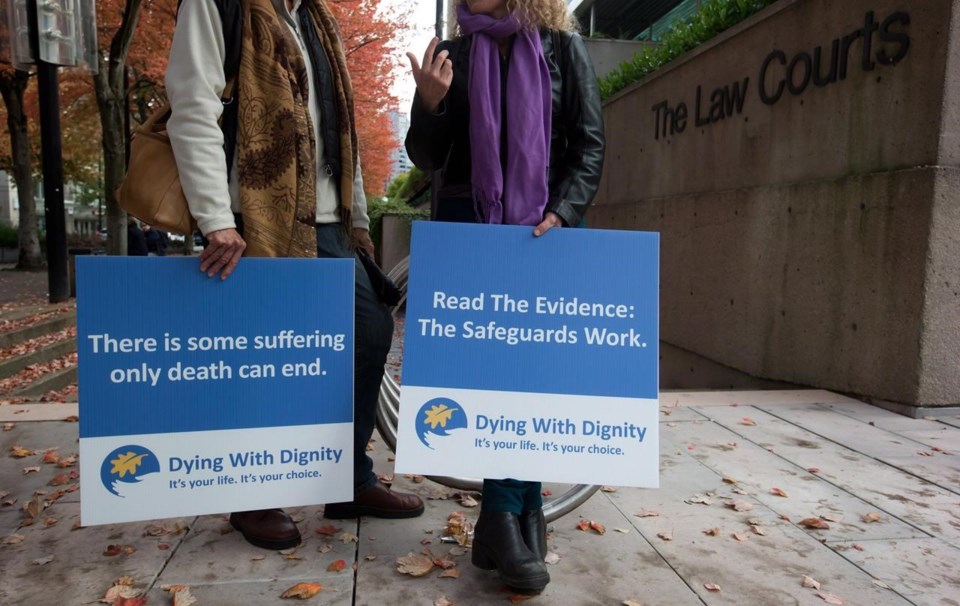VANCOUVER — A national organization that supports those seeking a medically assisted death is campaigning to stop forced transfers of patients within public care facilities in British Columbia.
Dying With Dignity Canada says forced transfers happen when a patient makes an end-of-life choice but is being treated in a facility that forbids medical assistance in dying.
The organization's Metro Vancouver, Victoria and Okanagan chapters say although the patient is in fragile health, the province allows that person to be moved away from their care community to a facility that offers assisted death.
Dying With Dignity says the service is being restricted because of an agreement that allows facilities covered by the Denominational Health Association to collect taxpayer dollars but refuse to perform services they oppose on religious or moral grounds.
Alex Muir, chair of the Metro Vancouver chapter of Dying With Dignity, says upholding the agreement denies eligible people their constitutionally protected right to access a medically assisted death.
Muir says supporters of the campaign should contact their elected provincial representative and can also download an advocacy tool kit from the organization's website.
"Under the Canada Health Act, and as affirmed by Supreme Court of Canada decisions, governments must offer reasonable access to all medically necessary services funded by the government," Muir says in a statement.
This report by The Canadian Press was first published March 7, 2022.
The Canadian Press



